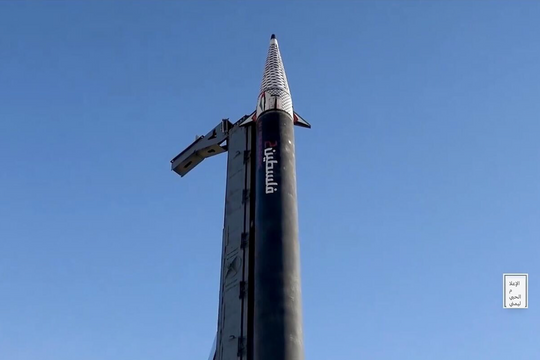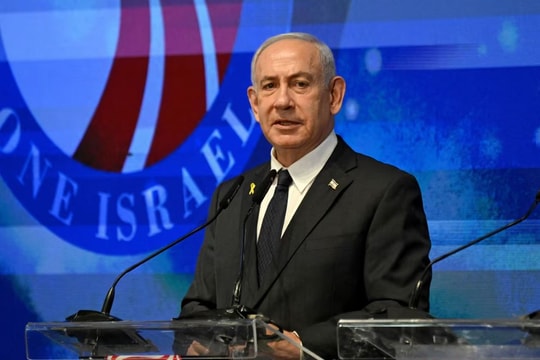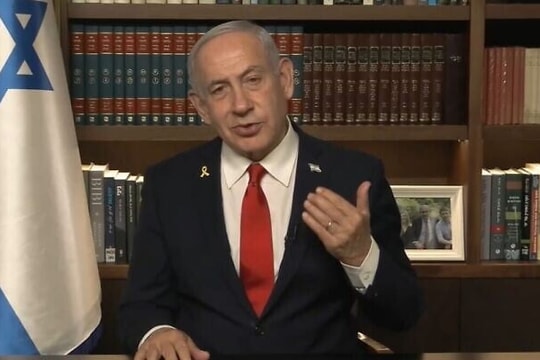Leaked secret information: Soviet Union helped establish the state of Israel
Leader Stalin in 1947 enthusiastically supported the establishment of Israel, hoping that the Jewish state would be an ally of the Soviet Union in the Middle East.
In 1947, the situation in the Middle East was tense, with bloodshed almost every week. Britain had ruled Palestine since 1920 and now wanted to end the mandate and give freedom to its former colony.
 |
| Israeli infantry during the country's War of Independence. Photo: Getty. |
At that time, tensions increased between Palestinian Arabs (about 1.2 million people, 65% of the population here) and Jewish settlers (about 608,000 people, 35% of the population). Arabsdid not want a Jewish state in Palestine and threatened to “throw it into the sea” if it came into being. For their part, the Jews had just suffered the most in the Nazi genocide, so they were determined to fight to establish a new homeland.
To achieve their goals, the Jews needed economic and diplomatic support. And one of their main allies in the 1948-1949 War of Independence was an unexpected factor - the Soviet Union. At that time, in order to expand the influence of the Soviet Union after winning World War II, leader Joseph Stalin was ready to support the Jewish community in Palestine.
Leonid Mlechin, a Russian historian and journalist, told Ekho Moskvy that “the creation of a Jewish state in Palestine was Stalin’s way of pushing Britain, which he disliked, out of the Middle East.” Since Arab states at the time were generally pro-British, Soviet leader Stalin opted for cooperation with the Zionists. (Stalin also hoped that Israel would eventually become a socialist country – ND).
Britain was not only a geopolitical rival of the Soviet Union. It was also hated by Jewish settlers. In 1946, Zionist militants bombed the King David Hotel in Jerusalem, which housed the British administration, killing 91 people.
Pushing the British out of Palestine was a common goal of both the Zionists and the Soviets, of course for different reasons.
Diplomatic war
After the British mandate ended, the Palestine issue was brought to the United Nations for a solution.
 |
| Soviet Ambassador to the United Nations Andrei Gromyko (1947) expressed strong support for Israel. Photo: AFP. |
While Britain did not support the idea of establishing an independent Jewish state, the two main powers of the post-World War II world order - the Soviet Union and the United States - opted for a two-state solution. This option of the United States and the Soviet Union was strongly opposed by the Arab countries. In November 1947, the Palestine issue was put to a vote in a plenary session of the United Nations General Assembly.
The Soviet ambassador to the United Nations, Andrei Gromyko, stated in his speech: “The Jewish people have been linked with Palestine throughout a long historical period.” This statement contradicted the Arab world’s view that the creation of the state of Israel was wrong. The Soviet Union became the first country to officially recognize Israel, two days after the country declared independence on May 14, 1948.
Support with weapons
The United States, although supporting the establishment of the state of Israel, officially banned the supply of weapons to the Middle East. Meanwhile, Moscow sent weapons to Zionist forces, albeit unofficially and indirectly through other countries, such as Czechoslovakia.
The Soviet Union collected German weapons they captured at the end of World War II to send to Israel. Israel received rifles, mortars and even a few Messerschmitt fighters via Czechoslovakia, with the permission and consent of the Soviet Union.
Of course, the Soviet Union was not the only source of weapons for the fledgling Jewish state. Israel was using every means possible to acquire weapons from all over the world. But the weapons sent by the Soviet Union certainly played a key role in Israel's victory in 1948.
The relationship gradually deteriorated.
But Stalin's support for the Israeli cause did not last.
 |
| Ms. Golda Meir, Israel's first special envoy to the Soviet Union. Photo: AP. |
In his book on the Zionist movement in the Soviet Union, Russian-born Israeli historian Julius Kosharovsky writes that relations between the two countries deteriorated rapidly after Israel's special envoy to the Soviet Union, Golda Meir, raised the issue of repatriating Soviet Jews to Israel.
The answer was a resounding “No.” The official Soviet position at the time was that all Jewish citizens of the Soviet Union, like all Soviet citizens in general, were perfectly happy and had no need of a promised land.
Israeli politicians could not accept that and they then quickly turned to America and considered America as their main ally.
The alliance between Israel and the United States had negative consequences for the subsequent relations between Israel and the Soviet Union. From the mid-1950s until the end of the Cold War, the Soviet Union supported the Arab world in its confrontation with Israel./.
According to VOV
| RELATED NEWS |
|---|








